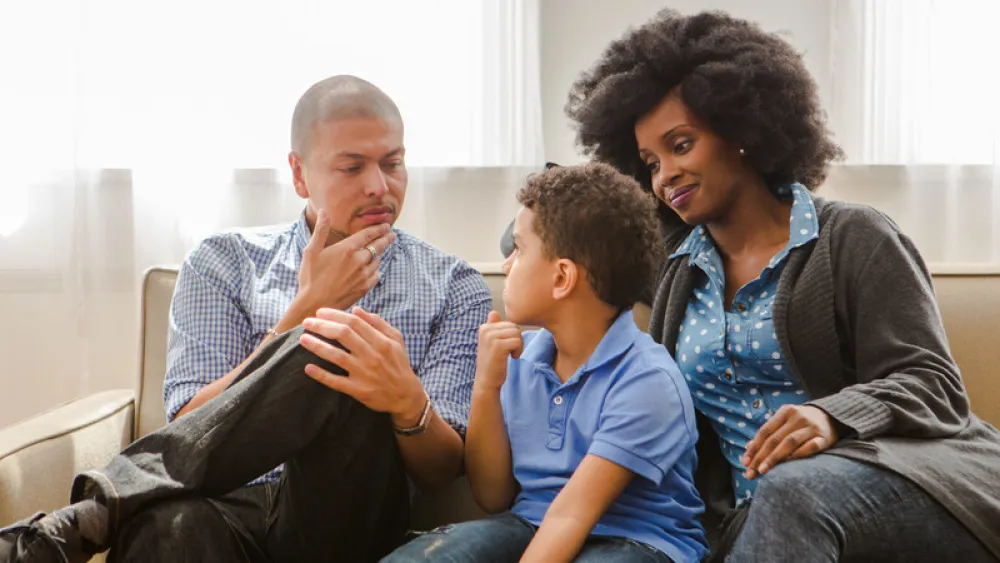




Family Health
Having the Talk!


It’s the conversation every parent dreads (and quite honestly, so do your kids.) But talking about “the birds and the bees” is perhaps one of the most important talks you will ever have with your child. So how does that conversation even start?
Whether you were aware of not, you probably have already started having “the talk” with your child. In fact, most experts will recommend having multiple “talks” with your child, not just one.
Since toddler age, they probably have been asking questions about the body and certain changes, and those questions most likely struck up discussions. Additionally, the media exposes children to these topics early on, and the sources aren’t always reliable. It is therefore quite important that you educate your children early on, typically before the changes even start. Don’t wait for your child to come to you asking about puberty. In a lot of children, especially ones who are shy, that day will never come!
Preparing your child for what is to come can make the changes they see in their own bodies easier to deal with. For example, talking to your daughter about menstruation prior to it occurring can help prevent being scared by the sight (and site) of the blood.
There is no magic age to start talking about puberty. It is typically thought to occur between the ages of 10 to 16 years old, but some bodies begin changing as early as 8. Girls typically start puberty before boys, but every body is different. A good way to start talking about puberty at these earlier ages is to read an illustrated children’s book about puberty.
What They Should Know
One of the most important things to relay to your children during puberty talks is that the physical changes happening to their body are all normal. Puberty happens to everybody, just not at the same time. No matter if your child is going through puberty months earlier or a year later than their friends, reassure them that each body is different and it is all normal. Helping your child develop healthy feelings about their body is very important.
Talk to your children about puberty signs. A lot of signs of puberty are the same for boys and girls and can include:
- Rapid change in height
- Thicker leg hair and new pubic and armpit hair
- Increased sweating and noticeable body odor
- Acne on face, chest and back
- Increased sexual feelings
- Changes in thoughts and feelings
Girls will also experience:
- Body shape changes, including a more rounder hip appearance
- Growth in breast size, sometimes one more rapidly than the other
- Once menstruation occurs, she will have bleeding about once a month. This is when her body prepares for a fertilized egg by filling the uterine lining with blood. Her period will occur if the egg isn’t fertilized. If it is fertilized, she becomes pregnant.
For boys, the changes include:
- Increased penis and testicle size
- Body shape changes, including a broader chest and increased muscle mass
- Voice changes, usually becoming deeper
- Sometimes can have “wet dreams,” when they ejaculate in their sleep
Tips for Talking
If the idea of talking to your son or daughter about sex makes you break out in a cold sweat, take time to educate yourself and make sure your own questions are answered first. Once you feel prepared, let your child know you are available to talk when they are ready. If they don’t have questions, you can take the lead. Some parents think it is easier to have these conversations while on a walk or in the car, where you don’t have to have eye contact with your child.
If you are caught off guard by a question and aren’t sure how to answer it, don’t go running for cover. Simply tell your child you will get back to them with an answer, and make sure to actually do that. I remind my patient’s families that if you don’t educate them, someone else will!
Lastly, if you ultimately don’t feel comfortable talking to your child about puberty, enlist the help of your child’s pediatrician. Here at Methodist Physicians Clinic, we can give you tips for how to give a puberty talk with your child and they can also help answer questions that your child may have.


